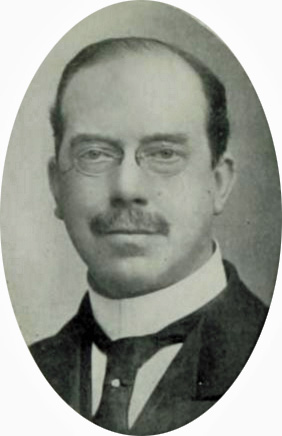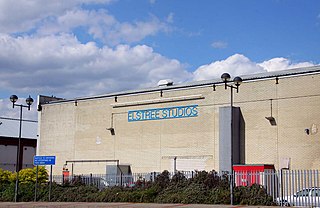
Samuel Alfred De Grasse was a Canadian actor. He was the uncle of cinematographer Robert De Grasse.

Edison Studios was an American film production organization, owned by companies controlled by inventor and entrepreneur, Thomas Edison. The studio made close to 1,200 films, as part of the Edison Manufacturing Company (1894–1911) and then Thomas A. Edison, Inc. (1911–1918), until the studio's closing in 1918. Of that number, 54 were feature length, and the remainder were shorts. All of the company's films have fallen into the public domain because they were released before 1928.

Herbert Brenon was an Irish-born U.S. film director, actor and screenwriter during the era of silent films through 1940.

Sir Oswald Stoll was an Australian-born British theatre manager and the co-founder of the Stoll Moss Group theatre company. He also owned Cricklewood Studios and film production company Stoll Pictures, which was one of the leading British studios of the silent era. In 1912, he founded the Royal Variety Performance a now-annual charity show which benefits the Entertainment Artistes' Benevolent Fund.
MGM-British was a subsidiary of Metro-Goldwyn-Mayer initially established at Denham Film Studios in 1936. It was in limbo during the Second World War; however, following the end of hostilities, a facility was acquired in Borehamwood, which remained in use until it was closed in 1970.

Joe May was an Austrian film director and film producer and one of the pioneers of German cinema.

Walter Alabaster West was an English film director and producer. He was a partner in the film production company Broadwest Films.

Under the Greenwood Tree is a 1929 British sound part-talkie historical drama film directed by Harry Lachman and starring Marguerite Allan, Nigel Barrie and Wilfred Shine. It is an adaptation of the 1872 novel Under the Greenwood Tree by Thomas Hardy.
British Instructional Films was a British film production company which operated between 1919 and 1932. The company's name is often abbreviated to BIF.
The British Actors Film Company was a British film production company that operated between 1916 and 1923 during the Silent era. It involved a consortium of prominent stage actors that included figures such as A.E. Matthews and Leslie Howard. The actors often exchanged their salaries for a share of the profits. Many of its films were made at Bushey Studios to the north of London.
Alf's Carpet is a 1929 sound part-talkie British comedy film directed by W. P. Kellino and starring Gerald Rawlinson, Gladys Hamer, Harald Madsen and Carl Schenstrøm. In addition to sequences with audible dialogue or talking sequences, the film features a synchronized musical score and sound effects along with English intertitles. The film was loosely based on the 1920 novel Alf's Button by W.A. Darlington. It is also known by the alternative title The Rocket Bus.
Catford Studios was a British film studio located in Southend, London, just southeast of Catford in Southeast London which operated from 1914 to 1921. It was also known as the Windsor Studios.

Imperial Studios were the studios of the British and Dominions Film Corporation, a short-lived British film production company located at Imperial Place, Elstree Way, Borehamwood, Hertfordshire. The studios were active from 1929 to 1936, when they were destroyed by fire.
Surbiton Studios were a British film studio located in Surbiton, then on the outskirts of London. The studio was one of several opened during the boom in British production following the First World War. It was opened in 1918 and its first film was released in January 1919. Its owners were Stoll Pictures which became one of the largest British film company of the early 1920s.
Astra Films was a British film production and distribution company of the silent era. It was set up in Leeds following the First World War by the film director Herbert Wilcox, his younger brother Charles Wilcox and H.W. Thompson, a leading figure in film distribution in the North of England. After the company's initial success, Wilcox left the firm to set up on his own and rose to become one of the most successful independent producer-directors in the world. After a merger the company released films under the name Astra-National.
Stoll Pictures was a British film production and distribution company of the silent era, founded in April 1918.
The Welsh-Pearson Company was a British film production and distribution company active during the silent and early sound eras. It was founded in 1918 by two pioneering film figures, George Pearson and Thomas Welsh, with the single-stage Craven Park Studios as their base. Because of the cramped conditions there, Welsh-Pearson had to use other studios such as Islington for larger scenes.
Broadwest or the Broadwest Film Company was a British film production company of the silent era. Its name it a portmanteau of its two founders, George Broadbridge and the film director Walter West. West took an active role in the company's productions, directing and producing many of the films. The company gained a reputation for producing films about horse racing, often based on popular novels such as those of Nathaniel Gould.
The Esher Studios were a British film studio located in Esher in Surrey. The studios opened in 1913 during the silent era. The studios were built by a company that included the director Warwick Buckland, but the failure of their films led to the sale of the site to Walter West's Broadwest. Broadwest later switched most of its filming to Walthamstow Studios. The studios continued to be used occasionally by independent filmmakers into the 1920s.

Elstree Studios on Shenley Road, Borehamwood, Hertfordshire is a British film and television production centre operated by Elstree Film Studios Limited. One of several facilities historically referred to as Elstree Studios, the Shenley Road studios originally opened in 1925.








